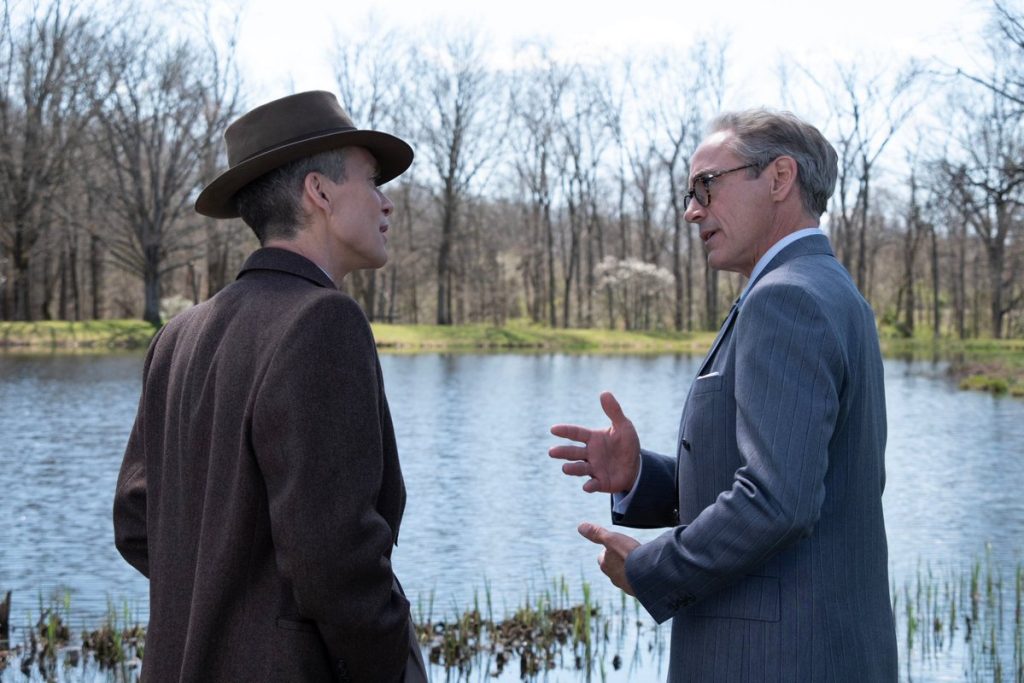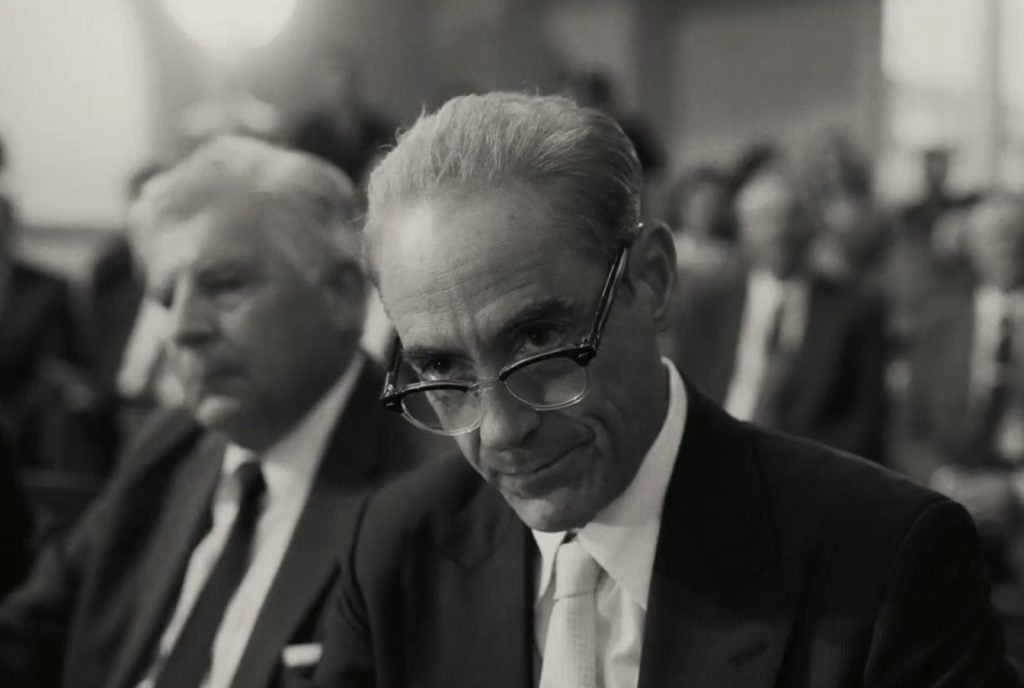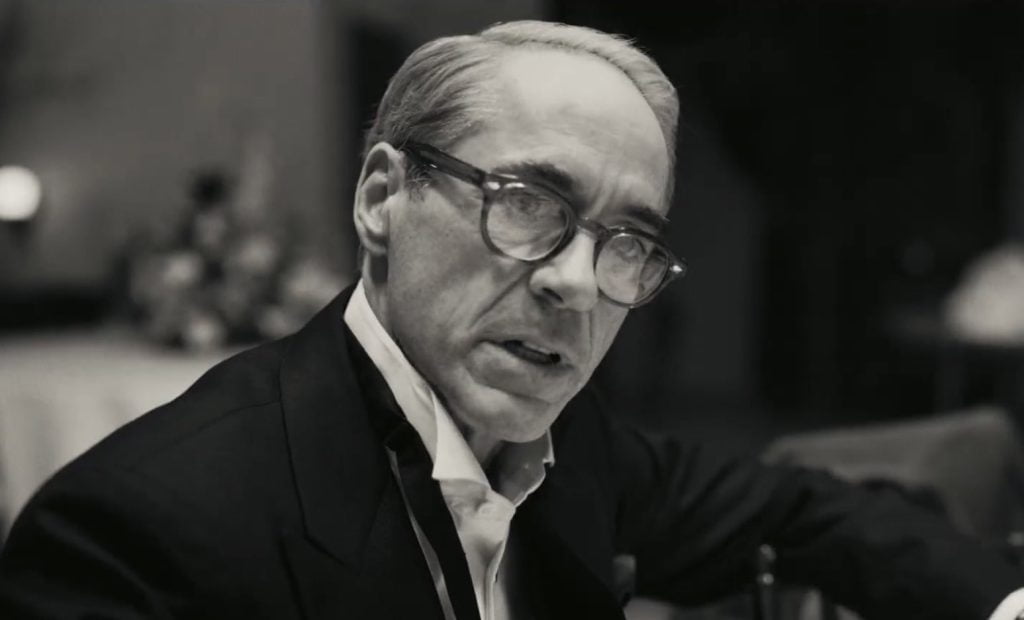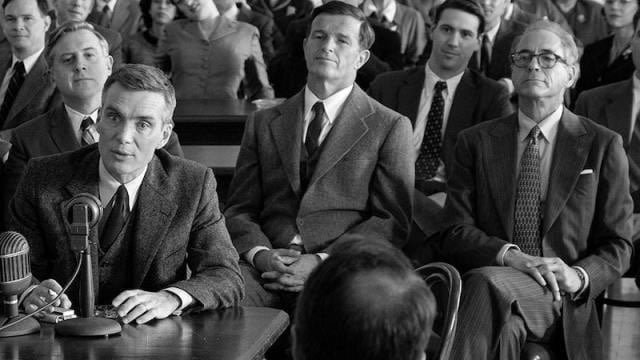The film about J. Robert Oppenheimer titled ‘Oppenheimer‘, directed by Christopher Nolan, is now playing in theaters. In the biographical thriller film, Cillian Murphy and Robert Downey Jr. played the roles of J. Robert Oppenheimer and Lewis Strauss. It was revealed that Strauss betrayed Oppenheimer due to political rivalries and doubts about Oppenheimer’s loyalty. In this area, we are going to cover what exactly happened between Lewis Strauss and the Oppenheimer controversy.

In the Shadows of History: Lewis Strauss’ Remarkable Journey
In the annals of American history, few figures have cast as long a shadow as Lewis Strauss, a multifaceted personality whose career spanned both the private sector and the highest echelons of government. Born on January 31, 1896, Strauss’ journey would see him ascend to the summit of the financial world as the esteemed chairman of Kuhn, Loeb & Co., while simultaneously embarking on a tumultuous political voyage. His most notable and contentious chapter was undoubtedly entwined with that of the enigmatic physicist, J. Robert Oppenheimer.
“Amateurs chase the sun and get burned. Power stays in the shadows.” – Lewis Strauss
The Atomic Commission and the Encounter with Oppenheimer
In 1953, Lewis Strauss was appointed Chairman of the United States Atomic Energy Commission (AEC), a position that bestowed upon him tremendous influence over the development and regulation of nuclear energy in the nation. It was during his tenure at the AEC that he would cross paths with the renowned Oppenheimer, a key architect of the atomic bomb and an indispensable figure during the dark days of World War II.
Clashing Ideals: Political Tension and Oppenheimer’s Past

But the 1950s were an era fraught with political tension, marked by the rise of McCarthyism and the insidious Red Scare. Oppenheimer’s past affiliations with leftist groups in the 1930s, though far removed from the present, suddenly came under scrutiny. Questions surrounding his loyalty and suitability for holding sensitive security clearances began to surface, setting the stage for a showdown that would reverberate throughout the nation.
Voices Raised: Lewis Strauss in the Oppenheimer Hearings
Lewis Strauss emerged as one of the most vocal voices in the hearings against Oppenheimer, expressing grave concerns about his past associations and their potential implications for national security. Accusations and insinuations were exchanged, and the atmosphere grew increasingly charged with political fervor. Many believed that the clash between Strauss and Oppenheimer was not only about loyalty but also about power struggles within the government.
Scientific Drama and Political Fallout
As the hearings progressed, the scientific community and the public watched in awe, and sometimes horror, at the unfolding drama. Supporters of Oppenheimer argued vehemently for his contributions to the war effort and his role in averting catastrophe. They deemed the proceedings nothing more than a vendetta against a brilliant mind whose independence clashed with the establishment’s vision.
A Shocking Decision: Oppenheimer’s Security Clearance Revoked

In a decision that shocked the nation, Oppenheimer’s security clearance was ultimately revoked. The fallout from this decision was immense, leaving a bitter aftertaste among scientists and intellectuals. Critics pointed to the revocation as a clear example of the perils of mixing politics with matters of scientific inquiry.
Legacy and Controversy: Lewis Strauss’ Enduring Impact
Despite the backlash, Lewis Strauss remained steadfast in his convictions and unapologetic for his stance. His involvement in the Oppenheimer controversy would forever link his name to one of the most debated moments in American history.
The Tale of Oppenheimer and Strauss: Science and Politics Intertwined
In the end, the Oppenheimer affair serves as a poignant reminder of the complexity of human nature and the interplay of politics and science. Lewis Strauss and J. Robert Oppenheimer, two men of extraordinary achievements, found themselves enmeshed in a struggle that transcended their respective fields, leaving an indelible mark on the annals of history. Their tale stands as a testament to the delicate balance between safeguarding national security and preserving the principles that define a democratic society.
RELATED: How Long Does Christopher Nolan’s ‘Oppenheimer’ Atomic Bomb Scene Last?









